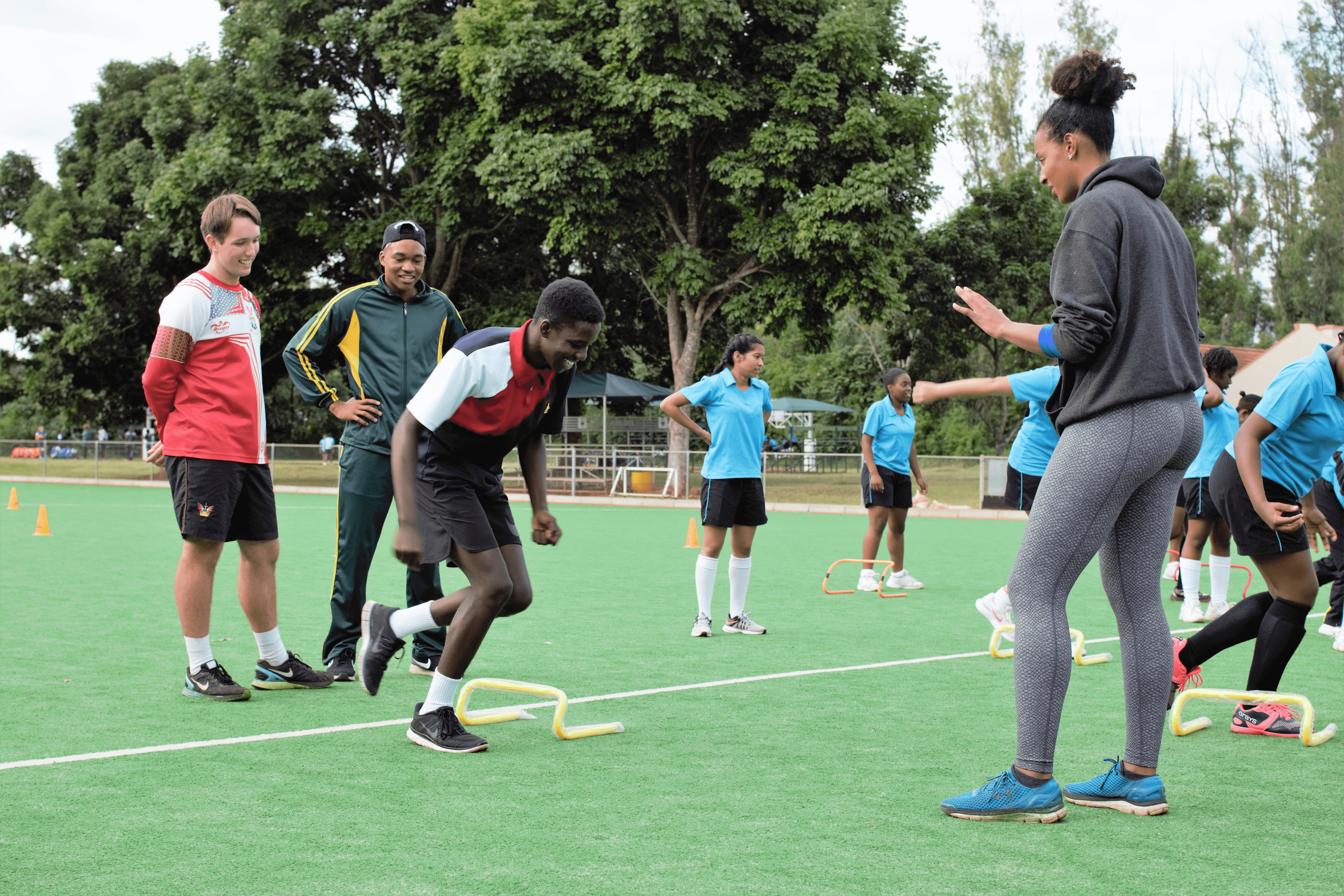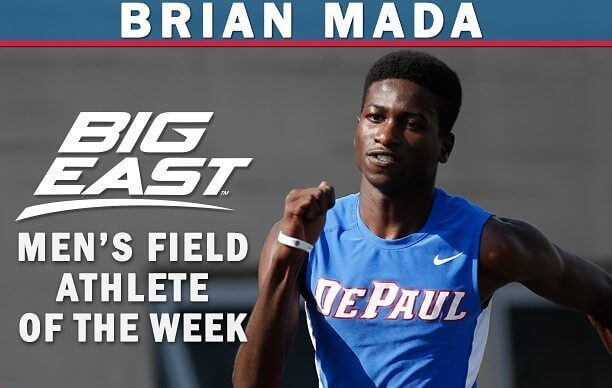So it turns out the more I interact with both students, parents and even teachers around the Sunshine City, the more I learn of the numerous misconceptions there are about sport and what it means to be a student athlete in both high school and college. As someone with over two decades of experience in sport, I feel it’s high time I set the record straight on myths about the experience of student athletes:
Myth #1 – Student-Athletes do worse academically than NARPs (Non- Athletic Regular People)
I feel the stereotypical images of the television “jock” who excels on the field, but is incapable of completing assignments, passing tests and holding intelligent conversations have ruined the true identity of student-athletes. Quite the opposite, I think we can all agree that we all knew a few students every year in high school who literally excelled at everything; sport, academics, perhaps a club like debate or who even had some musical inclination. Those in the ‘anti-sports’ camp will have you believe that students like that are an anomaly and rare. Sure there are students who just have an overwhelming abundance of natural ability and talent. Every year you will also find students who are athletes who are not academically inclined, just like you will find a considerable percentage of NARPs (with plenty of time to focus on academics) who struggle in class. The overwhelming omission in all of these descriptions are of those students who participate in sport regularly and competitively and who simultaneously thrive in the classroom. Studies have shown that students who participate in sport in high school and college are more likely to do better in school and in fact record higher GPA’s in college than students who do not participate in sport. Assessments by the NCAA show that 80% of college student-athletes are earning degrees, the highest recorded rate ever.
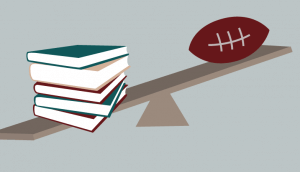 How is this possible? you ask. Well, contrary to the belief that sport takes away time and energy from school and studies, with the right planning and balance sport encourages students to manage their time efficiently. Outside of the obvious health benefits of sport, student-athletes learn to prioritize and multi-task, ensuring that time is scheduled each day to complete assignments and study outside of training and practice times. Due to the fact that they have less free time, student athletes must use the time they have effectively in order to keep up academically and athletically. After an exhausting day, student-athletes are more likely to opt for a much needed good night’s sleep crucial for mental clarity and concentration needed to be alert in class the following day. Sleep deprivation not only affects a students ability to concentrate in class, but also impacts their level of play on the field as well. Thus, student-athletes with a true desire to excel athletically will ensure that they are putting themselves and their bodies in the best possible position to optimally compete. They are also more likely to eat healthier and at regular intervals so as to perform better athletically. Finally, many parents appreciate the discipline that commitment to regular sport develops as students are less likely to have idle time within which to engage in mischief!
How is this possible? you ask. Well, contrary to the belief that sport takes away time and energy from school and studies, with the right planning and balance sport encourages students to manage their time efficiently. Outside of the obvious health benefits of sport, student-athletes learn to prioritize and multi-task, ensuring that time is scheduled each day to complete assignments and study outside of training and practice times. Due to the fact that they have less free time, student athletes must use the time they have effectively in order to keep up academically and athletically. After an exhausting day, student-athletes are more likely to opt for a much needed good night’s sleep crucial for mental clarity and concentration needed to be alert in class the following day. Sleep deprivation not only affects a students ability to concentrate in class, but also impacts their level of play on the field as well. Thus, student-athletes with a true desire to excel athletically will ensure that they are putting themselves and their bodies in the best possible position to optimally compete. They are also more likely to eat healthier and at regular intervals so as to perform better athletically. Finally, many parents appreciate the discipline that commitment to regular sport develops as students are less likely to have idle time within which to engage in mischief!
2) Sports won’t get you anywhere in life.
Now we all know this to be the true opinion of many a Zimbo family. In fact, it is not just true to sport but most non-traditional career paths or simply, anything that won’t see you end up as a doctor, lawyer, engineer, actuary or accountant. With regards to student-athletes and even professional sport, it is true that no matter how talented you may be, a career ending injury could change the entire trajectory of your life. However, it is also true that there is in fact a vibrant life filled with opportunities through engaging in sport as well. Statistics show that those who go on to pursue sport competitively in college appear more attractive as candidates to potential employers. Similarly, the exposure that sport provides through travel and networking for those who pursue it at a higher level have the opportunity to build a considerable network that can be used later on in life. Fortune Magazine reports that 80% of female Fortune 500 executives competed in sports at one point in their lives, 80%! More and more corporates are identifying the intangible qualities that sport develops that translate into the corporate world; leadership, teamwork, communication skills, working well under pressure, self motivation and motivating others, discipline, resilience and the ability to listen to instruction and take criticism are just some of the qualities that student-athletes are developing every day!
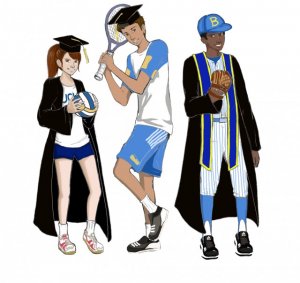 That is not to say that sport is the only way within which to learn such skills, but it definitely is the healthiest and most fun. Student-athletes are often unaware of the soft-skills that they develop and in Zimbabwe, more coaches need to be cognizant of the wonderful platform that sport provides to mould well-rounded young ladies and gentlemen.
That is not to say that sport is the only way within which to learn such skills, but it definitely is the healthiest and most fun. Student-athletes are often unaware of the soft-skills that they develop and in Zimbabwe, more coaches need to be cognizant of the wonderful platform that sport provides to mould well-rounded young ladies and gentlemen.
What also is more pertinent to student-athletes in high school is their ability to use sport to finance their tertiary education. Those talented enough in their sporting discipline may be fortunate enough to earn significant and even full athletic scholarships in the US amounting to anywhere between $20 000- $70 000 a year! Naturally such scholarships are extremely competitive but should definitely be on the radar of qualified Zimbabwean student-athletes. Outside of full athletic scholarships, well-rounded students may use sport to supplement and strengthen their applications to university and may even earn partial financial aid through sport to support any academic financial awards. In this way, sport may literally be the vehicle that a student can use to change their life through education!
Keep an eye out for next week’s blog where two more common misconceptions about Student Athletes will be busted!
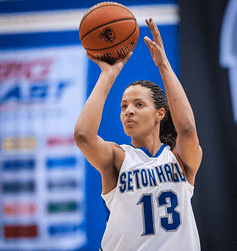 Author Alexandra Maseko is the Student Athlete Cohort Coordinator at Education Matters. Alex was a Division 1 NCAA Student Athlete at Seton Hall where she played basketball and graduated with BA and MA degrees in International Relations.
Author Alexandra Maseko is the Student Athlete Cohort Coordinator at Education Matters. Alex was a Division 1 NCAA Student Athlete at Seton Hall where she played basketball and graduated with BA and MA degrees in International Relations.

